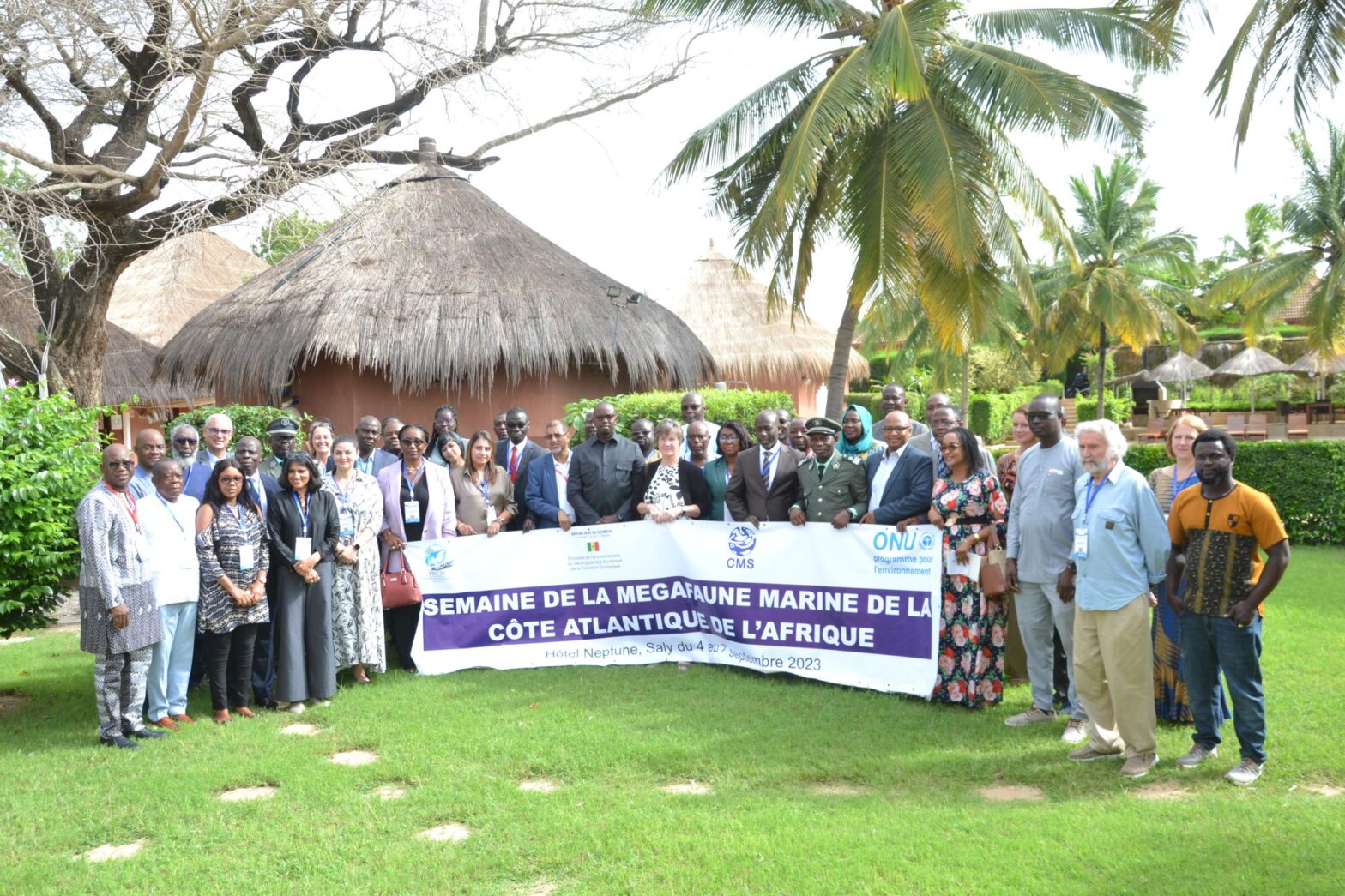CMS Marine Megafauna Week: Protecting Marine Wildlife in the West African Region
Jointly organized by the Convention on Migratory Species (also known by its acronym CMS or as the Bonn Convention) and the Regional Partnership for the Conservation of the Coastal and Marine Zone (PRCM), the CMS Marine Megafauna Week: Atlantic Coast of Africa took place from September 4 to 7, 2023 in the Senegalese resort of Saly. Government representatives, national and international non-governmental organizations, and scientists discussed four draft action plans for the region’s marine and coastal species.
The first phase (September 4 and 5) was devoted to the 3rd meeting of the signatories of the Abidjan/Atlantic Turtle Memorandum of Understanding, adopted by 17 states at an international conference held from May 25 to 29, 1999 in Abidjan, Côte d’Ivoire. This was an opportunity to review the current state of conservation of the species, and the new threats that are exacerbating the pressure on the species and its habitat. The meeting was followed by a discussion on an ambitious draft conservation and management strategy for sharks and rays, given the growing threat to these species.
The second phase of the meeting (September 6) was devoted to the draft Species Action Plan for the Atlantic humpback dolphin. The Atlantic humpback dolphin (Sousa teuszii), also known as the Cameroon dolphin, is listed on CMS Appendices I and II, and is classified as Critically Endangered on the International Union for Conservation of Nature (IUCN) Red List of Threatened Species. This plan, proposed for adoption by the states at CMS CoP 14, aims to promote the long-term sustainability of Atlantic humpback dolphin populations and their habitats by reducing the negative impacts of human activities, focusing on research, awareness-raising, capacity-building and conservation actions
Finally, the third phase of Megafauna Week (September 7) was devoted to finalizing the Action Plan to combat the illegal harvesting of aquatic wildmeat in West Africa for adoption by COP14. Indeed, at CMS COP13 in 2020, the region’s governments expressed their desire to draw up an action plan on aquatic wild meat. This work was therefore entrusted to the CMS Aquatic Wild Meat Working Group, in partnership with OceanCare, BEES NGO under the leadership of the Government of Benin. The first step in developing this action plan was a series of 4 online meetings from June to August 2023. These sessions enabled representatives from range states (Benin, Burkina Faso, Cabo Verde, Côte d’Ivoire, Gambia, Ghana, Guinea, Guinea-Bissau, Liberia, Mali, Niger, Nigeria, Senegal, Sierra Leone, Togo) and stakeholders (NGOs, international organizations, scientists, etc.) to share their experiences of aquatic wild meat harvesting, and to discuss the details of a West African Aquatic Wild Meat Action Plan. The final day of Megafauna Week served to finalize these various discussions and to validate the draft action plan to be presented at COP14.
More information about the outcome of the series of workshops
Meeting page with Documents in both English and French.
Brief overview about the workshop series by the CMS Secretariat in Saly, Senegal.
